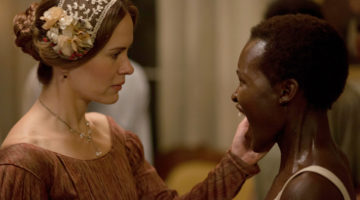5 Questions for Academy Award-winning composer Michael Giacchino
A film score can make or break a film. Think of your favorite film and try to imagine it with a completely different score. Would Up have made grown men cry if it weren’t for its melancholic, uplifting score? Would famed director J.J. Abrams’ films be as thrilling without their charged scores? Did you know that Academy Award-winning American film composer Michael Giacchino is responsible for these and many others? The self-confessed “nerd composer who sometimes composes for nerds” very kindly took time out of his busy schedule to answer some of our questions recently. He spoke about his upcoming projects (including the much anticipated Tomorrowland and Jurassic World ) and encouraged Star Trek fans to attend Star Trek with Live Orchestra on March 21st at the Sony Centre for the Performing Arts in downtown Toronto.
Scene Creek: You’ve scored films that encompass all genres, from Up to Star Trek to Dawn of the Planet of the Apes. Do you set a difference in tone in scoring these projects or do you develop a style that is more suited to the studio or director you’re working with?
Michael Giacchino: I try to choose projects that I am passionate about that are being directed by people who I enjoy working with. It is very important for me to sit with the director and review the story, to completely understand what the themes of the film will be. Music is another way of storytelling and it is crucial to be in sync with the story that the director wants to tell. The musical tone of the film develops from there, and isn’t related to the specific studio I am working with. I can’t emphasize enough the importance of getting to the real story. For example: when I started to write my main theme for Star Trek, I was thinking in terms of a space opera, and nothing I wrote was working until Damon Lindelof, one of the producers, said, “Don’t think of it as a space opera, think of it as a story of how two men became best friends.” That description changed everything and the next piece I wrote was Enterprising Young Men. So the tone definitely stems from the story.
SC: You’re working on the music for three highly anticipated upcoming films-Tomorrowland, Jurassic World, and Inside Out. Can you tell our readers a little bit about your work on these features?
MG: Tomorrowland and Inside Out bring me back together with Brad Bird and Pete Docter respectively, and that’s always fun. Tomorrowland is about how we used to view the future…I guess in the way that Star Trek did back in the ’60s…with optimism and excitement. It was interesting to capture that feeling in music, with a somewhat retro symphonic sound. Inside Out was a blast because we used a variety of tones, jazzy, whimsical, ethereal. I am currently writing Jurassic World. It’s kind of like going full circle since my first recorded score was for the LOST WORLD video game. Getting back to dinosaur music is always a good thing.
SC: Your Twitter profile picture is that of an open road. What are your hopes for the future and where would you like to boldly go in your career?
MG: I am really happy with what I am doing, and in fact consider myself extremely fortunate to be in this business. Who knows where it will all lead? I just hope to have good friends to make interesting things with.
SC: We have Star Trek LIVE in Toronto and now there’s also Ratatouille LIVE happening in Switzerland. Which of your scores would you like to see performed live next, and why?
MG: I am really excited about the live to picture projects, not necessarily for the specific films, but because it is a way to bring live music and orchestral sound to a whole new audience. I am happy to have any of my films developed for this type of performance…after all, you can have a giant screen in your living room, but you can’t have a full orchestra. I think the Pixar films are especially exciting since they will bring entire families to the concert hall.
SC: What do you attribute the longevity and popularity of Star Trek to?
MG: The characters. The mission. The idea of exploring a frontier. It focuses on our never-ending curiosity. In the end, I think Star Trek is optimistic about what we can contribute to the universe.
Star Trek (2009) with Live Orchestra is playing on March 21st at 7:30pm at the Sony Centre for the Performing Arts in downtown Toronto. The performance will be featuring the Kitchener-Waterloo Symphony and conducted by Erik Ochsner. Preceding the show there will be a special discussion in the lower lobby with Ochsner, Technical Director Eric Wegener, and moderated by music producer Vikas Kohli.



